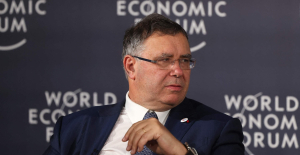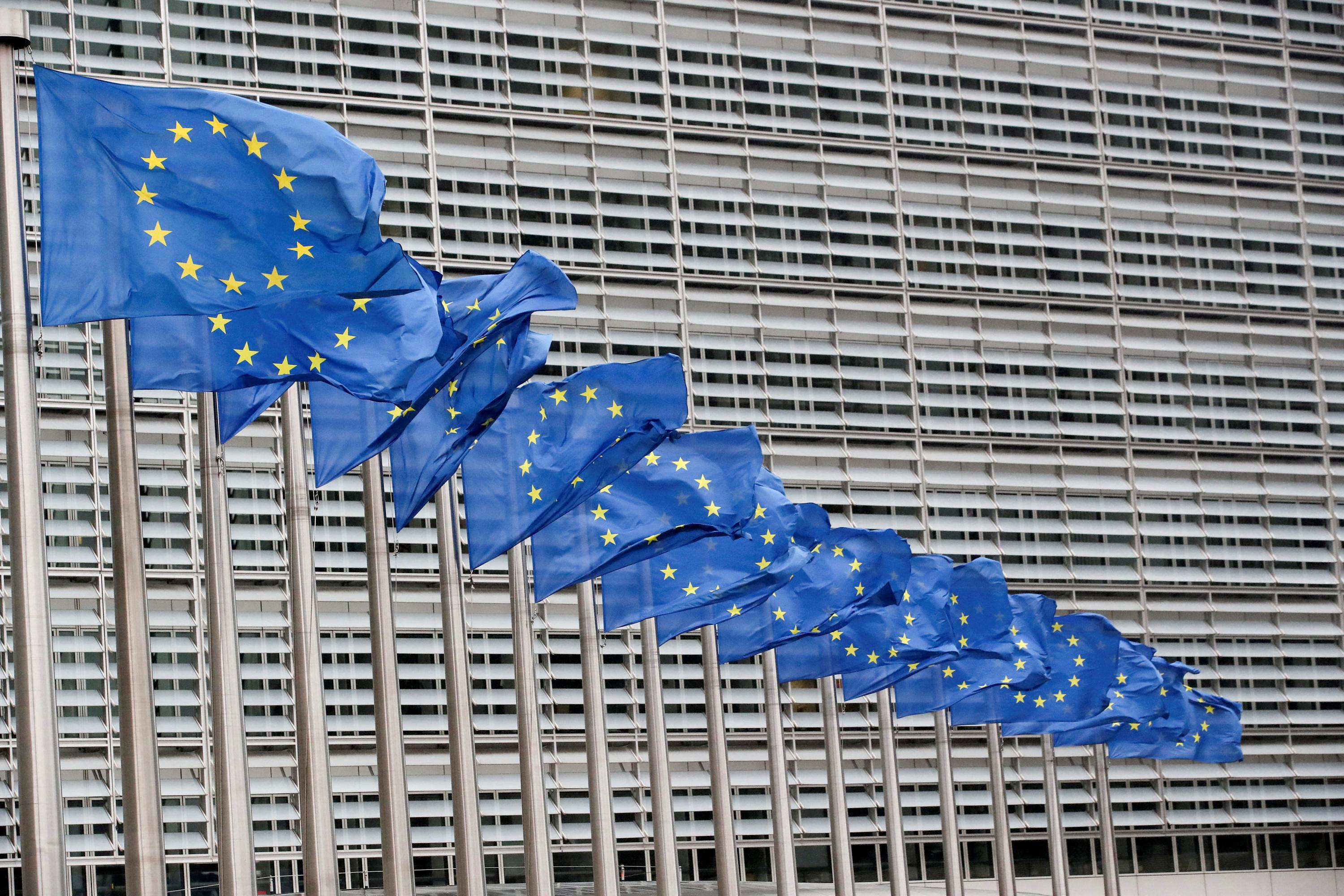The European Parliament and the Member States reached an agreement on the night of Saturday February 10 on a reform of the EU budgetary rules intended to guarantee the recovery of public finances while preserving investments.
“Agreement!” announced the Belgian Presidency of the Council of the EU on the social network austerity in Europe. Pressed for time, the negotiators finally reached an agreement after 16 hours of discussions. Given the procedural delays, it was absolutely necessary to conclude so that the text could be voted on in plenary session in Strasbourg in the spring before the parliamentary break which precedes the European elections in June. The agreement reached last night will allow Member States to apply the new rules this year for their 2025 budgets.
They “will contribute to the balance and viability of public finances, structural reforms, the promotion of investments, growth and the creation of jobs in the EU”, affirmed the Belgian presidency of the Council of the European Union. EU on X (formerly Twitter).
The reform intends to modernize the Stability Pact, created at the end of the 1990s, which limits the public administration deficit for each country to 3% of GDP and the debt to 60%. Considered too drastic, this framework was never really respected and was considered obsolete. While confirming these emblematic ratios, the new text makes the adjustment requested from EU countries in the event of excessive deficits a little more flexible. Concretely, it provides that States present their own adjustment trajectory in order to ensure the sustainability of their debt, giving them more time if they undertake reforms and investments.
The management would focus on the evolution of expenditure, an indicator considered more relevant than deficits which can fluctuate depending on the level of growth. But Germany and its “frugal” allies managed to tighten this budgetary framework by imposing a minimum quantified effort to reduce debt and deficits for all EU countries, despite the reluctance of France and the Italy. These modifications have partly distorted the project and greatly complicated the text. The EU Finance Ministers had painfully delivered a common position, just before Christmas, on this reform which intends to combine budgetary seriousness and safeguarding the investments necessary for the green transition or defense.
The indebted countries of southern Europe, like France, insisted on additional flexibilities, while the so-called “frugal” countries of northern Europe, behind Germany, demanded more rigor. “A new economic governance framework was much needed. We have ensured that the new budgetary rules are sound and credible,” declared MEP Esther de Lange (EPP, right), rapporteur of the text.
In the European Parliament, the project is also supported by the liberals of Renew and a large majority of the social democratic group (S

 B:SM will break its investment record this year with 62 million euros
B:SM will break its investment record this year with 62 million euros War in Ukraine: when kyiv attacks Russia with inflatable balloons loaded with explosives
War in Ukraine: when kyiv attacks Russia with inflatable balloons loaded with explosives United States: divided on the question of presidential immunity, the Supreme Court offers respite to Trump
United States: divided on the question of presidential immunity, the Supreme Court offers respite to Trump Maurizio Molinari: “the Scurati affair, a European injury”
Maurizio Molinari: “the Scurati affair, a European injury” Irritable bowel syndrome: the effectiveness of low-carbohydrate diets is confirmed
Irritable bowel syndrome: the effectiveness of low-carbohydrate diets is confirmed Beware of the three main sources of poisoning in children
Beware of the three main sources of poisoning in children First three cases of “native” cholera confirmed in Mayotte
First three cases of “native” cholera confirmed in Mayotte Meningitis: compulsory vaccination for babies will be extended in 2025
Meningitis: compulsory vaccination for babies will be extended in 2025 When traveling abroad, money is a source of stress for seven out of ten French people
When traveling abroad, money is a source of stress for seven out of ten French people Elon Musk arrives in China to negotiate data transfer and deployment of Tesla autopilot
Elon Musk arrives in China to negotiate data transfer and deployment of Tesla autopilot Patrick Pouyanné, CEO of TotalEnergies, is very reserved about the rapid growth of green hydrogen
Patrick Pouyanné, CEO of TotalEnergies, is very reserved about the rapid growth of green hydrogen In the United States, a Boeing 767 loses its emergency slide shortly after takeoff
In the United States, a Boeing 767 loses its emergency slide shortly after takeoff A charred papyrus from Herculaneum reveals its secrets about Plato
A charred papyrus from Herculaneum reveals its secrets about Plato The watch of the richest passenger on the Titanic sold for 1.175 million pounds at auction
The watch of the richest passenger on the Titanic sold for 1.175 million pounds at auction Youn Sun Nah: jazz with nuance and delicacy
Youn Sun Nah: jazz with nuance and delicacy Paris Globe, a new international theater festival
Paris Globe, a new international theater festival Skoda Kodiaq 2024: a 'beast' plug-in hybrid SUV
Skoda Kodiaq 2024: a 'beast' plug-in hybrid SUV Tesla launches a new Model Y with 600 km of autonomy at a "more accessible price"
Tesla launches a new Model Y with 600 km of autonomy at a "more accessible price" The 10 best-selling cars in March 2024 in Spain: sales fall due to Easter
The 10 best-selling cars in March 2024 in Spain: sales fall due to Easter A private jet company buys more than 100 flying cars
A private jet company buys more than 100 flying cars This is how housing prices have changed in Spain in the last decade
This is how housing prices have changed in Spain in the last decade The home mortgage firm drops 10% in January and interest soars to 3.46%
The home mortgage firm drops 10% in January and interest soars to 3.46% The jewel of the Rocío de Nagüeles urbanization: a dream villa in Marbella
The jewel of the Rocío de Nagüeles urbanization: a dream villa in Marbella Rental prices grow by 7.3% in February: where does it go up and where does it go down?
Rental prices grow by 7.3% in February: where does it go up and where does it go down? Even on a mission for NATO, the Charles-de-Gaulle remains under French control, Lecornu responds to Mélenchon
Even on a mission for NATO, the Charles-de-Gaulle remains under French control, Lecornu responds to Mélenchon “Deadly Europe”, “economic decline”, immigration… What to remember from Emmanuel Macron’s speech at the Sorbonne
“Deadly Europe”, “economic decline”, immigration… What to remember from Emmanuel Macron’s speech at the Sorbonne Sale of Biogaran: The Republicans write to Emmanuel Macron
Sale of Biogaran: The Republicans write to Emmanuel Macron Europeans: “All those who claim that we don’t need Europe are liars”, criticizes Bayrou
Europeans: “All those who claim that we don’t need Europe are liars”, criticizes Bayrou These French cities that will boycott the World Cup in Qatar
These French cities that will boycott the World Cup in Qatar MLS: new double for Messi who offers victory to Miami
MLS: new double for Messi who offers victory to Miami PSG-Le Havre: Ramos on his way, Kolo Muani at the bottom of the hole… Favorites and scratches
PSG-Le Havre: Ramos on his way, Kolo Muani at the bottom of the hole… Favorites and scratches Football: Vasco da Gama separates from its Argentinian coach Ramon Diaz
Football: Vasco da Gama separates from its Argentinian coach Ramon Diaz F1: for the French, Ayrton Senna is the 2nd best driver in history ahead of Prost
F1: for the French, Ayrton Senna is the 2nd best driver in history ahead of Prost

















